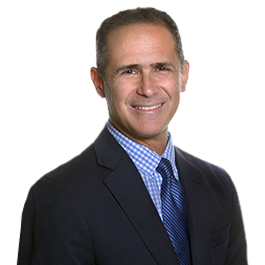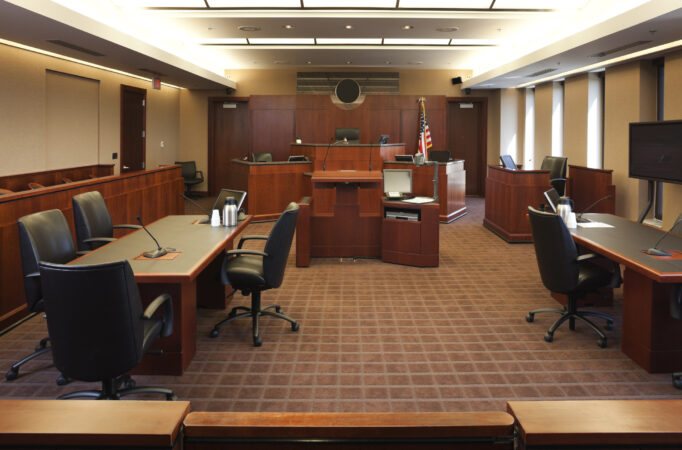Litigation: Latest Legal Blogs and News
Pennsylvania Superior Court Holds Claims for Injuries Sustained by Closely-Held Corporation are Derivative in Nature
In the recent case of Hill v. Ofalt, 2014 PA Super 17 (Pa. Super. Feb. 5, 2014), the Pennsylvania Superior Court considered whether the trial court had properly sustained preliminary objections to claims asserted by an individual shareholder who was attempting to recover for various injuries allegedly incurred as a result of another shareholder mismanaging their restaurant business. Despite the fact that there were only two shareholders in the corporation, the trial court concluded that the injured shareholder’s claims were derivative in nature and sustained the objections without leave to amend. The Pennsylvania Superior Court agreed the claims were derivative, but held that the trial court had abused its discretion in refusing to allow the shareholder to amend the complaint to assert the claims derivatively on behalf of the corporation.
In rejecting the shareholder’s argument that it was entitled to assert the claims directly, the court focused on the nature of the alleged injuries. Contrary to the shareholder’s argument, the court concluded that the breach of contract and breach of fiduciary duty claims asserted by the shareholder did not state viable individual causes of action because there was no contract with the shareholder, and there was no fiduciary duty owed to the individual shareholder. See 15 Pa.C.S.A § 1717 (“The duty of the board of directors, committees of the board and individual directors under [15 Pa.C.S.A. § 1712] (relating to standard of care and justifiable reliance) is solely to the business corporation ….”). Moreover, the court also rejected the contention that a fiduciary duty was owed because the entity was a closely held corporation. In so concluding, the court distinguished two common pleas court decisions in which such a duty was recognized on the basis that they involved a “freeze out” of minority shareholders by the majority shareholders. As such, the cases did not support the shareholder’s argument, particularly since the complaint alleged that the two shareholders each owned fifty percent of the corporation’s stock.
The court also rejected the shareholder’s argument that he had suffered individual injuries in the form of individual tax liens and liability for a personal loan guaranty. According to the court, these injuries indirectly flowed from the original injuries that were allegedly suffered by the corporation. In addition, relying on a well-reasoned decision from the Seventh Circuit Court of Appeals (Mid-State Fertilizer Co. v. Exch. Nat’l Bank, 877 F.2d 1333, 1335-1336 (7th Cir. 1989)), the court noted the potential for double exposure that would result if such indirect injuries were actionable as direct claims.
Finally, the court concluded its analysis by predicting that the Pennsylvania Supreme Court would not adopt the substantive aspects of Section 7.01(d) of the ALI Principles of Corporate Governance, even though it has previously stated that Pennsylvania courts may consider ALI principles to the extent they are “consistent with Pennsylvania law.” Cuker v. Mikalauskas, 547 Pa. 600, 692 A.2d 1049 n.5 (Pa. 1997). That section essentially allows the court to relax the direct/derivative distinction in the context of a closely-held corporation where the underlying purpose of the section is not served. Although the court recognized that certain procedural aspects of Section 7.01(d) might be adopted, it held that the substantive aspects would not be adopted-i.e., Pennsylvania courts may not treat derivative claims as direct claims when the direct/derivative dichotomy is not implicated. The court found that doing so would contravene Pennsylvania law, which states that duties are owed to the corporation, not the shareholder. Thus, the individual shareholder was not permitted to assert his claims directly, even though the corporation was closely held.
As a comment, adherence to the direct/derivative dichotomy strictly follows the law, even if it may not always seem practical. In the case of a corporation that has only two shareholders (as was the case in Hill), for example, it might seem needlessly formulaic to require the claims to be brought derivatively since the injury suffered by the shareholder is (arguably) incurred more “directly” than it is in the case of a corporation with thousands of shareholders. Nonetheless, disregarding the direct/derivative distinction in cases in which the shareholder suffers an indirect injury (such as when he or she becomes personally liable for an obligation belonging to the corporation) can needlessly create other recovery problems. As the court noted in Hill, allowing these types of claims to proceed directly theoretically creates a “double exposure” problem because the wrongdoer obviously cannot be liable to both the shareholder and the corporation for the same injury.
Upholding the direct/derivative distinction avoids this problem, however, by ensuring that the proper party recovers proper source. Specifically, rather than recovering from the wrongdoer, a shareholder who has been exposed to or satisfied an obligation belonging to the corporation can seek to recover from the corporation, which, in turn, may recover from the wrongdoer for the direct injury sustained by the corporation. Although allowing the injured shareholder to recover directly from the wrongdoer streamlines the recovery process by avoiding the shareholder having to recover from the corporation, it nonetheless ensures that the corporation is not deprived of its right to recover for the direct injury for the benefit of not only its shareholders, but also its creditors. Said another way, removing the corporation from the recovery process runs the risk of depriving the corporation of its independent right to recover for its direct injury from the wrongdoer and theoretically could put the corporation in the position of having to recover from the shareholder to satisfy its other creditors if the shareholder has already recovered directly from the wrongdoer for his or her indirect injury. Consequently, it cannot be said that disregarding the direct/derivative distinction will always result in simplifying the recovery process, and doing so might even put the corporation’s other creditors at risk.
Incidentally, for further discussion of the issue addressed in Hill, please see my prior blog post from October 29, 2013, titled “Common Pleas Court Allows Sole Shareholder to Assert Non-Derivative Claim for Injuries Sustained Directly by Corporation.” There, I touched upon some of the concerns that were recently elaborated upon in Hill.
About Us
The litigation attorneys at Houston Harbaugh, P.C., are accomplished business trial lawyers, providing comprehensive support in litigation across a broad spectrum of matters throughout Pennsylvania, West Virginia, Ohio and other jurisdictions upon a special admission basis. Our clients are regional and national small, medium and large companies and individuals who seek well planned and aggressive, but cost effective litigation. We counsel, we budget, we have a deep bench, we act quickly when needed and we have experienced trial lawyers who know the courts and bench. We serve regularly as local counsel for some of the largest law firms in the country when they have matters in this region.

Henry M. Sneath - Practice Chair
Co-Chair of Houston Harbaugh’s Litigation Practice, and Chair of its Intellectual Property Practice, Henry Sneath is a trial attorney, mediator, arbitrator and Federal Court Approved Mediation Neutral and Special Master with 98 trial verdicts and extensive federal and state court trial experience in cases involving commercial disputes, breach of contract litigation, Artificial Intelligence (AI), intellectual property matters, patent, trademark and copyright infringement, trade secret misappropriation, DTSA claims, cyber security and data breach prevention, mitigation and litigation, employment and restrictive covenant litigation, probate trusts and estates litigation, construction claims, eminent domain, professional negligence lawsuits, pharmaceutical, products liability and catastrophic injury litigation, insurance coverage, and insurance bad faith claims. DTSALaw® Business Litigation. Pittsburgh Strong.®

Samuel H. Simon - Practice Chair
As co-chair of Houston Harbaugh’s Litigation Group, Sam focuses his practice on commercial/business litigation. Sam regularly represents clients in the construction, manufacturing, oil and gas, and wholesale/retail/ distribution industries, as well as individuals in matters such as:
- Construction litigation
- Environmental litigation
- Breach of contract disputes
- Oil and gas litigation
- Negligence
- Restrictive covenants (non-compete agreements)
- Civil rights
- Collections/creditors’ rights
- Lease disputes

